In week four of our Academic Staff Awards finalists series, we recognise the educators that go above and beyond to inspire and support Macquarie students – enriching the learning experience so they can reach their highest potential.
Register to attend the Awards ceremony on 30 November and help us celebrate our best.
Vice-Chancellor’s Learning and Teaching Sessional Staff Award
Recognises staff for their approaches to teaching and support of learning that influences, motivates, and inspires students to learn.
Mr Joshua Fitzgerald | Department of Chiropractic
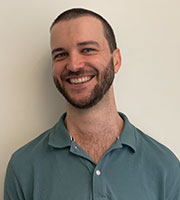 That chiropractor Josh Fitzgerald is engaging is an understatement.
That chiropractor Josh Fitzgerald is engaging is an understatement.
In facilitating lightbulb moments, Josh takes great care to cultivate a safe and encouraging learning environment for every personality in his diverse cohort through positive reinforcement, “abundant enthusiasm and terrible jokes”.
Despite the complex subject matter, his grounded, human-centred approach is reflected in his students’ perception of him as a “super tutor” with more energy and drive than your average teacher. Importantly, he also succeeds in making the subject matter ‘stick’ and in developing the skills to excel in course work, clinical placement and a future career. Every student in three of his units in 2020 agreed he “created a good environment for learning” with 99 per cent saying he “engaged them in active learning”.
“I am in the privileged position of teaching widely across the undergraduate and postgraduate chiropractic degrees,” says Josh. “This affords me the opportunity to build bridges for students, highlighting the interconnection between units and how they work together towards the end goal of becoming a safe and effective clinician.
“I thoroughly enjoy bridging this disconnect to improve students’ motivation, engagement and understanding with reference to both their current studies and long-term career path.”
Dr Amanda Head | Macquarie Law School
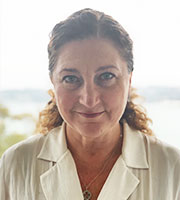 Dr Amanda Head’s former students regularly ask her to mentor and provide advice beyond graduation, reflecting the positive connections she builds in her classes.
Dr Amanda Head’s former students regularly ask her to mentor and provide advice beyond graduation, reflecting the positive connections she builds in her classes.
Her empathy stimulates a sense of belonging as she draws on her passion for the law to inspire and guide her students.
“Although teaching is perhaps my fourth career, it is, without doubt, the most rewarding,” says Amanda, who’s developed innovative programs to further engage and motivate her students.
“I identified a need for mature-age Bachelor of Laws students, who, when arriving at university, can feel disenfranchised in a cohort of mainly 18-year-olds. In response, I facilitated a new support group, including a dedicated MULS Facebook group, to guide and motivate students and to help develop their sense of connection.”
Amanda positions students as advisers and teachers to increase confidence and their connection within the legal research space.
“My collaborative brainstorming workshop encourages creativity and free-thinking,” she explains. “Secondly, I designed a novel peer-review workshop to enhance students’ meaningful early engagement with their major assessment.”
She has also brought literature to life by recording interviews with academics on their specific research methodologies: “These bite-size clips encourage students to engage with the concepts and the underlying literature.”
Mr Damian Jurd | Department of Computing
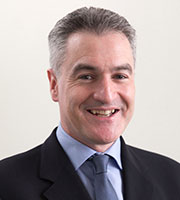 Damian Jurd’s model of ‘continuous assessment’ continues to benefit Macquarie and its students – across many facets of the computing curriculum.
Damian Jurd’s model of ‘continuous assessment’ continues to benefit Macquarie and its students – across many facets of the computing curriculum.
Since developing the Data Communications unit to be built around this technique in 2018, failure rates have dropped, overall grades improved, and it’s been applied to other units under Damian’s influence.
In his Offensive Security unit, which he launched in 2019, students learning the art of penetration testing – a skill highly sought by employers – are assessed continuously through gamification. It paid off last year, when in their second intervarsity competition under Damian’s mentorship, the team placed first in Australia and 30th globally.
“Many of these students have since gone on to careers as penetration testers with well-known global firms,” says Damian.
His cutting-edge teaching continues to evolve. In Comp2000, Damian takes students beyond the basic elements of programming and leads them through the process of structuring a full application program.
“Instead of using PowerPoint, I developed elements of an application interactively during the lecture. During weekly workshops, students provided a verbal explanation of their solution to a weekly programming exercise to their tutor. In keeping with this approach, this semester we will ask students to perform weekly code reviews, as is normal industry practice.”
Mr Dylan Thompson | Department of Economics
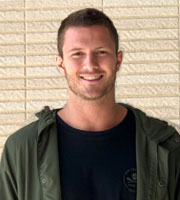 When Dylan Thompson became a tutor, he vowed to make his lessons inspiring. He wanted his students to want to attend class – and be able to make friends in the process. Unlike his own experience as a student.
When Dylan Thompson became a tutor, he vowed to make his lessons inspiring. He wanted his students to want to attend class – and be able to make friends in the process. Unlike his own experience as a student.
“As an undergraduate, I struggled to find the motivation to attend tutorials. Tutors were often uninspiring and preoccupied with making sure the class finished on time.”
Dylan says new students often struggle with the abstract concepts of economics – “made worse by the traditional ‘chalk and talk’ approach”.
So, this year he redesigned the tutorials for Principles of Economics 1 using non-traditional resources such as pop cultural references, YouTube videos, social media sources and data journalism sites.
He also structured tutorials to focus on how economists actually work, by beginning each tutorial with a real-world problem before introducing a relevant economic model with which to analyse it.
Dylan believes group work and the ability to make friends is important in maintaining motivation.
“Each class I aim to present myself in a friendly, relatable and approachable manner, which I believe helps encourage students to participate in tutorials and feel comfortable asking questions. I find this particularly important as I often did not feel comfortable asking questions in class as an undergraduate.”
Vice-Chancellor’s Award for Teaching Excellence
This award recognises staff for their excellence in teaching and support of learning and the impact they have on influencing, motivating and inspiring students to learn.
Dr Alissa Beath | Department of Psychology
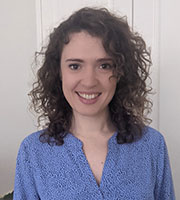 Dr Alissa Beath’s dedication to supporting all of her students – regardless of demographic or academic background – is now reflected across the Bachelor of Psychology.
Dr Alissa Beath’s dedication to supporting all of her students – regardless of demographic or academic background – is now reflected across the Bachelor of Psychology.
In leading their “first exposure” to the science of psychology, Alissa uses engaging resources and humour to empower her students to overcome the anxiety associated with difficult aspects of the course.
With 80 per cent of Psychology students experiencing ‘statistics anxiety’, Alissa says for those who have undertaken the course to “help people”, research methods and statistics are a barrier.
“I proactively address this anxiety by presenting evidence that it can be beneficial, and encouraging students to reframe their negative attitudes into a growth mindset,” she says.
As Undergraduate Director of Psychology, Alissa coordinates offerings for more than 5000 students, and her leadership has created a pathway to high-quality education for students who would otherwise be unable to access it.
“Open Universities Australia students have a different demographic profile to traditional undergraduates, and this necessitates a strategic approach,” she says.
As well as reviewing the roll-out of an award-winning peer review program, Alissa has rewritten both the statistics and research methods curriculums and shown decisive leadership in transitioning Psychology to mass online delivery during the COVID-19 pandemic.
Dr Frances Chang | Department of Management
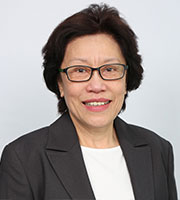 An experiential approach to learning and teaching means students get to experience real-world business challenges. It starts with students getting to know each other in a fun, speed-dating way. “It creates a positive, friendly atmosphere, conducive to engaging with peers and building teamwork” says Dr Frances Chang.
An experiential approach to learning and teaching means students get to experience real-world business challenges. It starts with students getting to know each other in a fun, speed-dating way. “It creates a positive, friendly atmosphere, conducive to engaging with peers and building teamwork” says Dr Frances Chang.
Throughout the session, students continue to experience real-world challenges by taking part in competitive Shark Tank-style series of pitch presentations and Simulation Games. Students get to apply theoretical concepts to analyse carefully selected case studies that address real-world business challenges. Frances feels that “Students get a feel of the difficulties of obtaining venture funds and learn to make decisions in difficult business situations”
“Our diverse student cohort enjoys guest speakers and relate particularly well with young entrepreneurs whom students find relatable and inspiring. I work with each guest speaker, so their talks underpin theory to practical real-world experiences,” says Frances.
Frances enjoys working with her team of tutors, “I take pains to explain in-class activities with them, alerting them to pressure points such as disinterest or hesitancy to participate, ensuring every student is given a voice, regardless of their different backgrounds.”
Frances has written new units and redeveloped existing units, always mindful of embedding an experiential approach to encourage ‘fun learning’.
Professor Iain Collings | School of Engineering
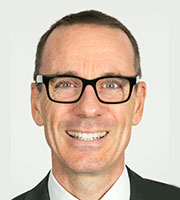 The unsolicited and passionate comments posted daily to Professor Iain Collings’ YouTube channel demonstrate the global impact of his teaching.
The unsolicited and passionate comments posted daily to Professor Iain Collings’ YouTube channel demonstrate the global impact of his teaching.
With almost three quarters of a million views and a daily audience average of 2500, the influence of his videos goes far beyond his coursework students.
Yet, by linking fundamental transformational concepts to real-world engineering systems, his students are unquestionably reaping the rewards of his “what, why and how approach” to engineering challenges.
“By approaching these questions from a student perspective, and contextualising complex mathematical concepts from practical perspectives, I aim to stimulate curiosity,” says Iain.
The increase in student Distinctions or High Distinctions from 11 per cent in 2019 to 34 per cent in 2021 attests to the success of his 150+ focused videos, which are presented in three modes: as components of a unit; as on-demand, searchable answers; and as browse-able content.
“I no longer present lectures, and instead flip the classroom and challenge students in practical sessions with projects linked to industrial applications,” he says. “The material draws on mathematics that is often challenging for engineering students. Not only do the videos address the demands of future online delivery methods, but also a long-held challenge of student learning in this area of engineering.”
Ms Linda Kelly | School of Social Sciences
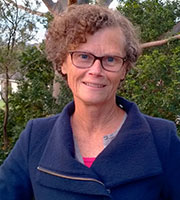 Linda Kelly’s students enhance their employability by “doing”. They better understand how real-world planning situations evolve – and they make connections with industry and stakeholders.
Linda Kelly’s students enhance their employability by “doing”. They better understand how real-world planning situations evolve – and they make connections with industry and stakeholders.
In transforming urban planning at Macquarie, Linda has drawn on extensive industry experience and embedded “doing” into her student-centred approach. This might involve engaging students with the tactile nature of LEGO and interactive 3D models to develop understanding of a difficult concept.
Outside the classroom, she simulates projects undertaken in the workplace, with students taking the lead in how to approach the project, with site visits and briefings by real planners.
Yet more real-world experience and the ability to hone collaborative problem solving is available in planning studios, which Linda has embedded across the entire Bachelor of Planning.
“It is especially important for students’ skills to meet expectations of professional practice,” she says. “Planning students needed more opportunities for critical thinking and problem solving so I developed an approach where students lead a four-week workshop on a quasi real-world issue. They develop skills that build towards preparing a design for a courtyard space on campus.
“The planning studio provides the opportunity for students and teacher to learn by doing and reflecting, while having fun in the process.”
Excellence in Higher Degree Research Supervision – Supervisor of the Year
This award recognises our outstanding Higher Degree Research (HDR) supervisors who enable our HDR candidates to achieve their highest potential.
Professor Chris Patel | Department of Accounting and Corporate Governance
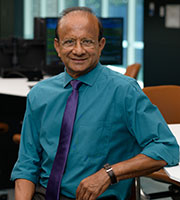 As Professor Chris Patel continues to build a legacy of research excellence around the world, he and his graduates are also pioneering international accounting on a global scale.
As Professor Chris Patel continues to build a legacy of research excellence around the world, he and his graduates are also pioneering international accounting on a global scale.
Of his 15 PhD and two Master of Research graduates to date, the four who remain at Macquarie have gone on to supervise 27 Higher Degree Research students to completion.
Part of this success is down to the high-calibre research students he attracts through Macquarie’s renowned International Accounting and Business Network.
“My students have gone on to have their own distinguished careers. They’ve improved the quality of research and teaching at their universities, and made valuable contributions to society both nationally and globally,” says Chris.
While his supervision philosophy centres on mentoring and working closely with his students towards “the unrelenting pursuit of excellence”, Chris is also firmly focused on building supervision capacity around the world.
He achieves this through workshops for supervisors and their students to improve international accounting research.
“Over the past five years, more than 600 supervisors and research students, mainly from emerging countries, have participated in our workshops,” he says. “My students contribute to these
workshops, and in return, they enlarge their network and receive useful feedback on their papers.”
Professor Anina Rich | Department of Psychology
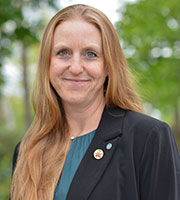 As well as her groundbreaking research in cognitive neuroscience, Professor Anina Rich is dedicated to cultivating outstanding researchers of the future.
As well as her groundbreaking research in cognitive neuroscience, Professor Anina Rich is dedicated to cultivating outstanding researchers of the future.
Her work attracts outstanding students from around the world, but it’s her supervision that inspires many to stay on and pursue a PhD with her. It is then that she works to develop the skills required to be a successful independent researcher.
“I mentor my students to write their research for publication so they graduate with experience in submitting and responding to reviews, and a record of high-quality papers,” she says. With an emphasis on high-quality research, excellent communication and timely completion, Anina’s students graduate with confidence in their abilities to conduct a successful research career.
Anina has supervised 13 PhD, five masters by research and two Honours students to completion, with seven PhD theses judged in the top five per cent by at least one examiner and all of her primary supervisions in the top 10 per cent. She continues to communicate and collaborate with many of her ex-students.
“Anina encouraged me to strive for the highest standard and provided connections to facilitate my growth within my research field,” says Dr Ann Carrigan.
“She created the perfect learning atmosphere, allowing every question to be asked and treating me with so much respect at all times,” says Dr Lina Teichmann.
Missed our earlier finalists profiles? Find them all here.

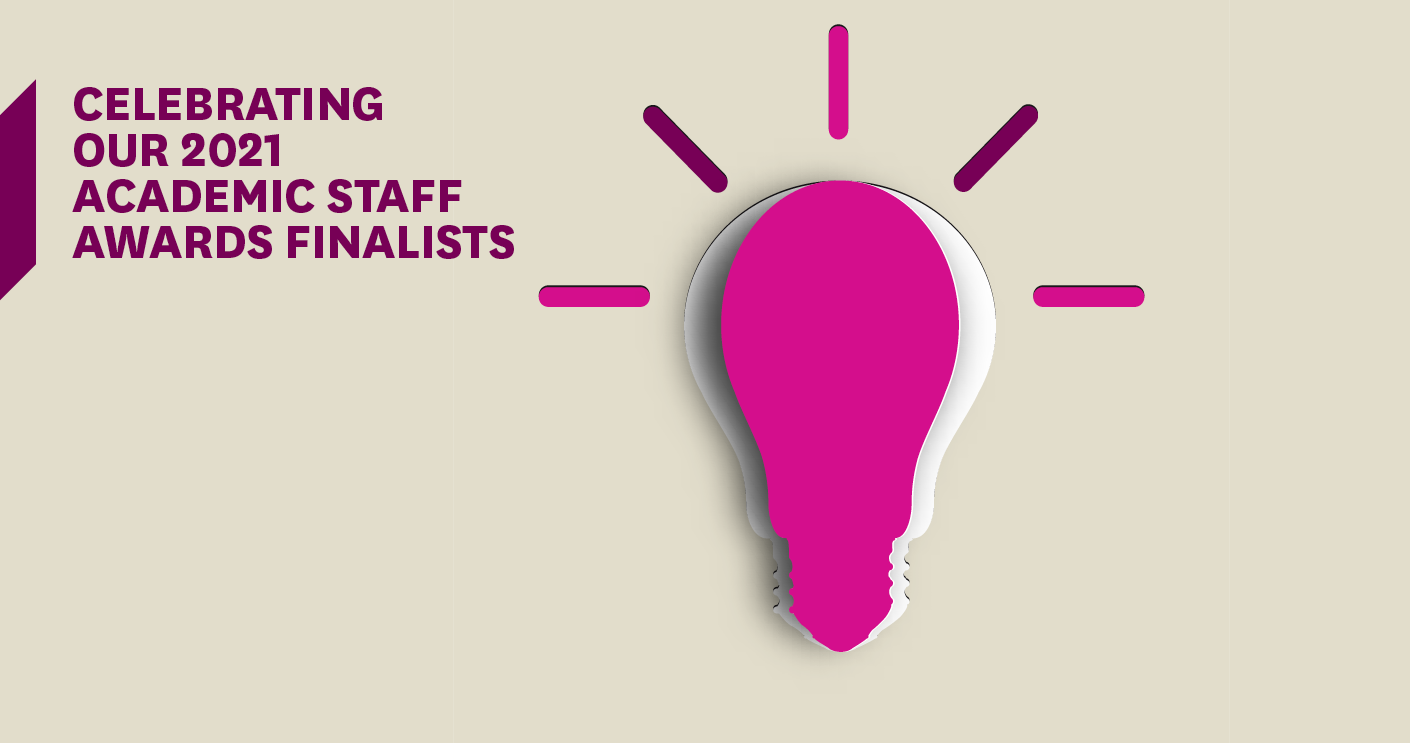
 Back to homepage
Back to homepage